After a Hari Raya with few Covid-19 restrictions, Kudus became a hot spot for Delta variant in Indonesia
Sign up now: Get ST's newsletters delivered to your inbox
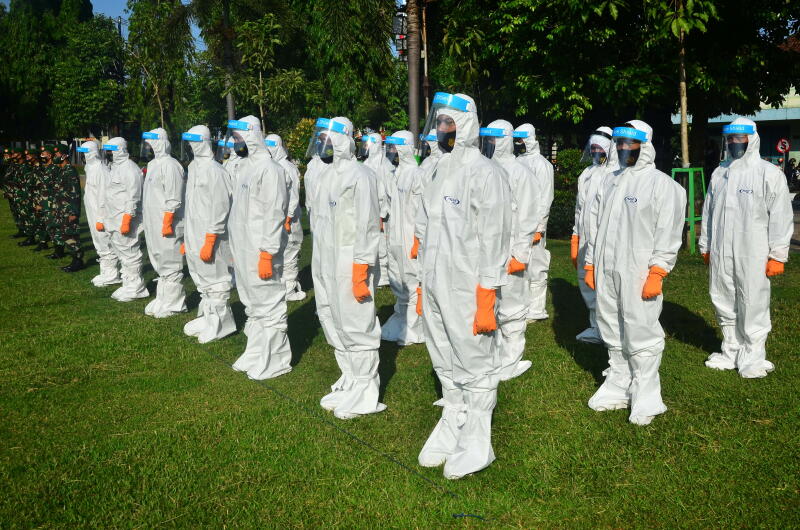
Covid-19 task force members attend a briefing on handling the coronavirus infection cases in Kudus, Central Java Province.
PHOTO: REUTERS
Follow topic:
KUDUS, INDONESIA - Two weeks after Hari Raya Aidilfitri celebrations last month, Indonesian Sutiyo Darto began developing a fever that would not go away.
His wife, children and most of the 50 families they visited in Kudus, in Central Java, were also unwell.
"It turned out that everyone had contracted Covid-19. It was truly terrifying. Several times a day, the mosque near my house would announce through the loudspeakers that someone has died from the coronavirus. When will it be my turn?" the 51-year-old odd-job labourer told The Straits Times by phone from a quarantine facility.
Kudus, the smallest regency in Java of 871,000 people, was thrust into the national spotlight in late May for being the first in Indonesia to detect the Covid-19 Delta variant.
Health Minister Budi Gunadi Sadikin had suspected the highly-virulent strain was brought in by Indonesian migrant workers returning from India, where it was first discovered.
Within a week, the number of cases in Kudus had jumped from 26 to 929, an official said in early June.
As at June 24, more than 12,985 people had been infected, including 1,070 who died, Kudus Health Agency data showed.
Mr Sutiyo said: "I'm so scared, I've been doing things I'd never done before. I used to wear a face mask under my chin, now I wear a mask properly. I pop vitamins, sun myself and jog every day."
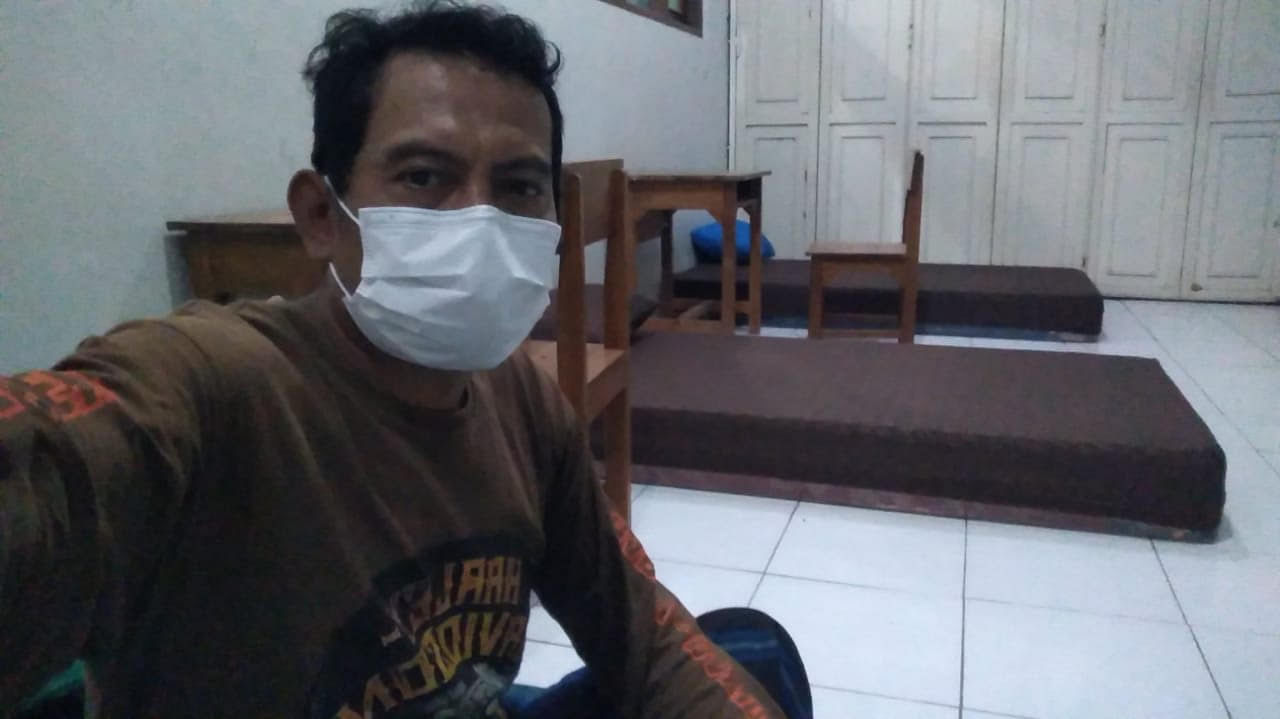
In response to the outbreak, the government dispatched 600 police and military personnel to the regency to ensure residents comply with health protocols.
Police used water cannons to spray disinfectant on the roads, while soldiers set up community kitchens to cook for people suspected of having Covid-19 who were isolating themselves at home.
Makeshift traditional markets were dismantled and the many cigarette factories were ordered to put their workers on shifts.
The Kudus regency administration had ordered residents to stay home on June 5 and 6, and carried out random antigen rapid tests on those who refused to comply and insisted on visiting shopping malls and warung food stalls, among other places.
Those tested positive or reactive were ordered to self-isolate or referred to quarantine facilities.

Religious leaders, too, have taken up arms in the war against the pandemic – but therein lies the schism, as some clerics adamantly refute Covid-19 safe measures.
As Kudus battled to break the chain of infection, Jakarta, the capital, and Bangkalan regency, on Madura island, also reported massive and rapid spikes in the number of Covid-19 cases, triggering fears of a fresh wave of infection hitting the country, India-style.
The Health Ministry had blamed the latest surge primarily on the Delta variant and widespread travel, or “mudik”, the mass travel of Indonesians from big cities to their hometowns during the Muslim holiday. And cases are continuing to soar.
The daily number of new cases in Indonesia has reached an all-time high of more than 20,000, exceeding the peak in January of 15,000 a day.
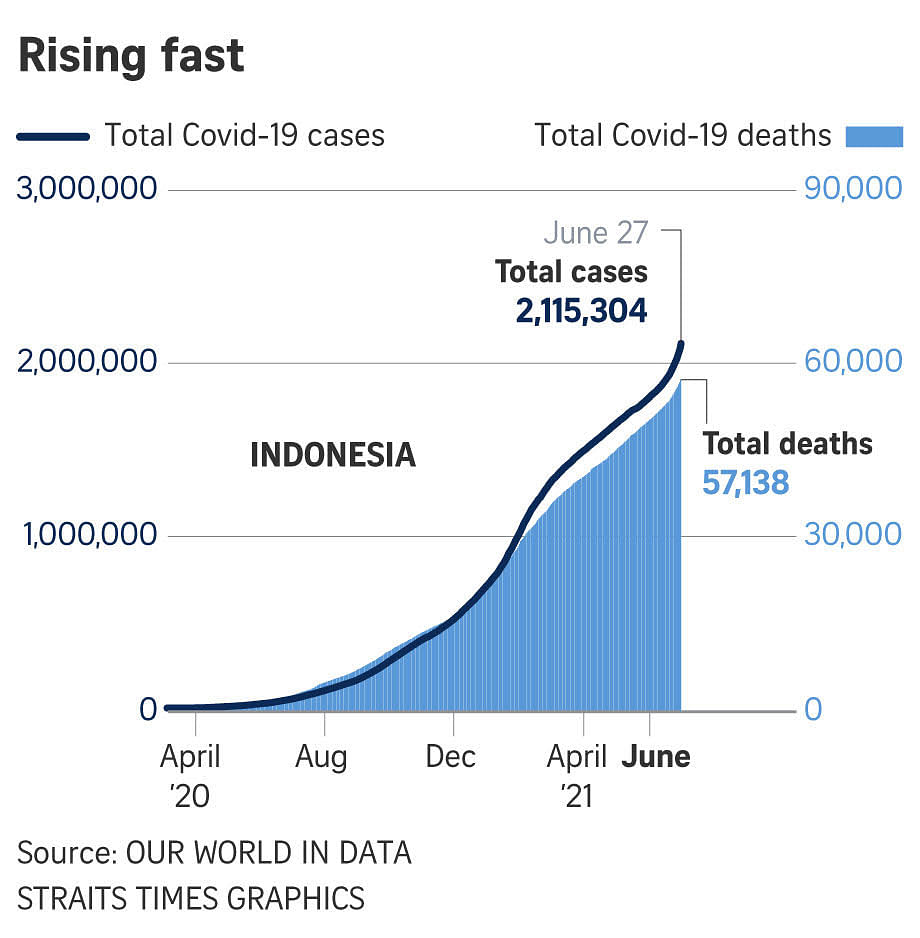
The total number of cases has surpassed two million, including more than 56,000 deaths, in the hardest-hit South-east Asian nation of 270 million people. Actual figures are believed to be higher, due to limited testing and contact tracing.
Epidemiologists are calling for a national lockdown to prevent the crisis from spiralling out of control and overwhelming the healthcare system. President Joko Widodo, however, insisted that more localised, micro-scale mobility restrictions, known as "Mikro PPKM", would suffice.
He said on Wednesday (June 23): "The government sees the policy as the most appropriate for the current situation as it can be run without killing the people's economy."
Pandemic fatigue
After more than a year of living under tightened health and safety protocols, pandemic fatigue and complacency appear to have set in among many Indonesians, including the residents in Kudus.
Despite an official ban on mudik and government appeals to wear masks, limit social interactions and maintain hygiene, many went ahead with the Hari Raya tradition of visiting the homes of friends and the graves of their loved ones.
Mr Sutiyo said he and his family did not miss the "kupatan" tradition of cooking rice cakes wrapped in coconut leaves and sharing them with neighbours.
He said: "We chatted a lot whenever we gathered and smoked a lot, too. It's too hot to be wearing masks so we just pulled our masks down when we talked."
Residents told The Straits Times that law enforcement has been weak. Even before Hari Raya, crowds thronged traditional markets and gathered at food stalls.
Those who had been vaccinated felt safe to mingle freely again, while those infected would self-medicate as they were scared to be hospitalised or quarantined outside their hometown.
Then, there are those who do not believe Covid-19 exists.
"Those who don't keep up with the news show a lackadaisical attitude towards the virus. Some refuse to wear masks because they don't even believe there's such a thing as Covid-19," Mr Faisol Ashar, 29, secretary at a religious school, told ST.
"So it's good that the government sent soldiers and police to patrol the streets and enforce health measures," he added.
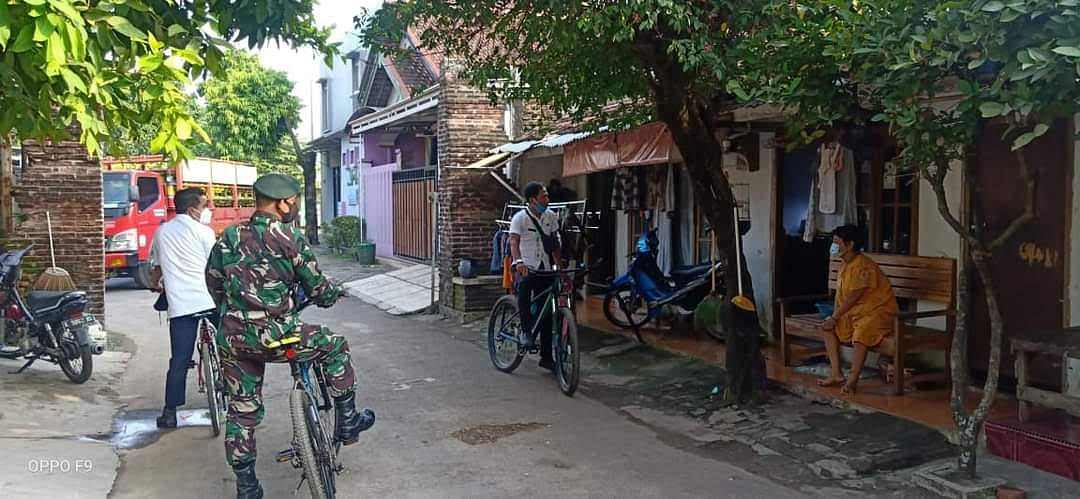
But the most troubling thing about Covid-19 is that even the most careful can still catch it.
"I had never left my house and I was still infected," Ms Fauzul Yusroh told ST by phone.
The 21-year-old public health undergraduate had spent most of her time at home after her university began online-based learning.

Yet, she found herself hooked up to the oxygen cylinder battling for her life early this month after having contracted the deadly Delta Covid-19 variant, likely from her mother, Ms Asniroh, a 53-year-old nurse from Kartika Husada hospital who tested positive for Covid-19 on June 1 after feeling nauseous and losing her sense of smell and taste.
Ms Fauzul and her father subsequently tested positive, too. But she got it the worst.
It all started innocuously with a "cough and cold which did not go away with paracetamol", she recalled. Then she began losing her appetite, even for her favourite satay and egg tofu dish.
She then developed breathing difficulty which became so bad she had to move to the living room to sleep as her room felt stuffy, she said, adding: "I panicked because I could not breathe properly. It felt as if someone was pressing down hard on my chest."
On the fifth day, she was taken to the hospital after her condition worsened, and she was given oxygen. She said: "The thought of death did cross my mind, but I prayed very hard. Everyone was praying for me too. After I felt like I could breathe again, I was vomiting for two days straight."
Now, she is even more fearful about going out. She wears double masks and takes vitamin supplements to boost her immune system. She said: "I wouldn't dare to remove my mask to eat outside now."
"The Pious" at the forefront of Covid-19 battle
More than 350 doctors and healthcare workers in Kudus had contracted the virus in the past month, with dozens hospitalised with high fevers and declining oxygen saturation levels.
Most with asymptomatic infections isolated themselves at home and, according to the health ministry update on June 19, 90 per cent of cases in this group have recovered and returned to work.
In the deeply-religious regency known as "Kota Santri", or "City of the Pious", Muslim clerics, students and Islamic mass organisations such as Nahdlatul Ulama (NU) and Muhammadiyah have emerged as the second line of defence in the battle against the deadly coronavirus.
As hospitals were almost full, many Covid-19 patients with mild or no symptoms had to be isolated at home. Sometimes, entire families had to be quarantined due to the exposure. Muslim volunteers would distribute food, honey and other health supplements to them.
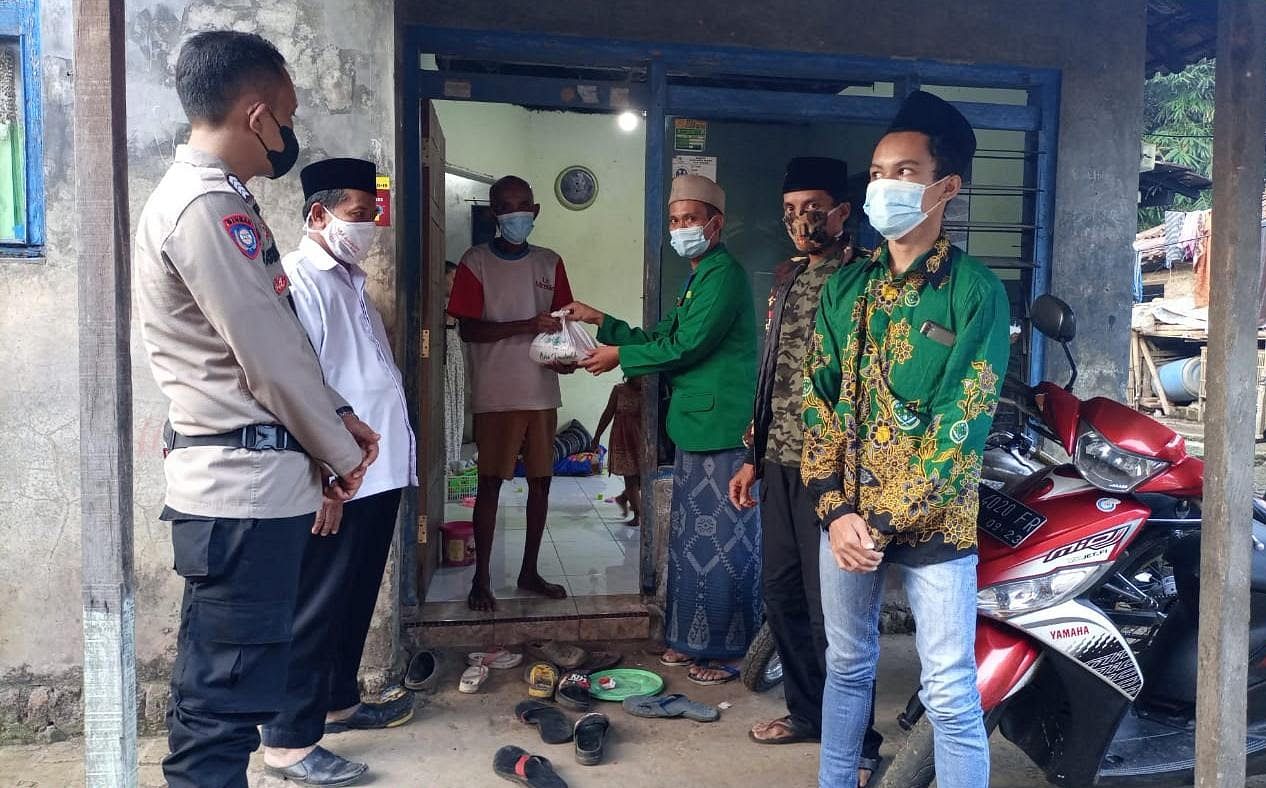
Mr Sarmanto Hasyim, head of NU's Covid-19 task force in Kudus, said he had sought advice on developing and running isolation facilities from Sonjo, a WhatsApp community group in Yogyakarta which has successfully converted disused hospitals into shelters for Covid-19 patients with mild to no symptoms.
"As the hospitals are full, patients isolate themselves at home but the virus can spread to other family members easily due to lack of monitoring," he told ST.
Twenty pesantren, or religious schools, have been converted into quarantine facilities, and the best-equipped one - Nashrul Ummah - has begun accepting not only pesantren students, but also members of the public.
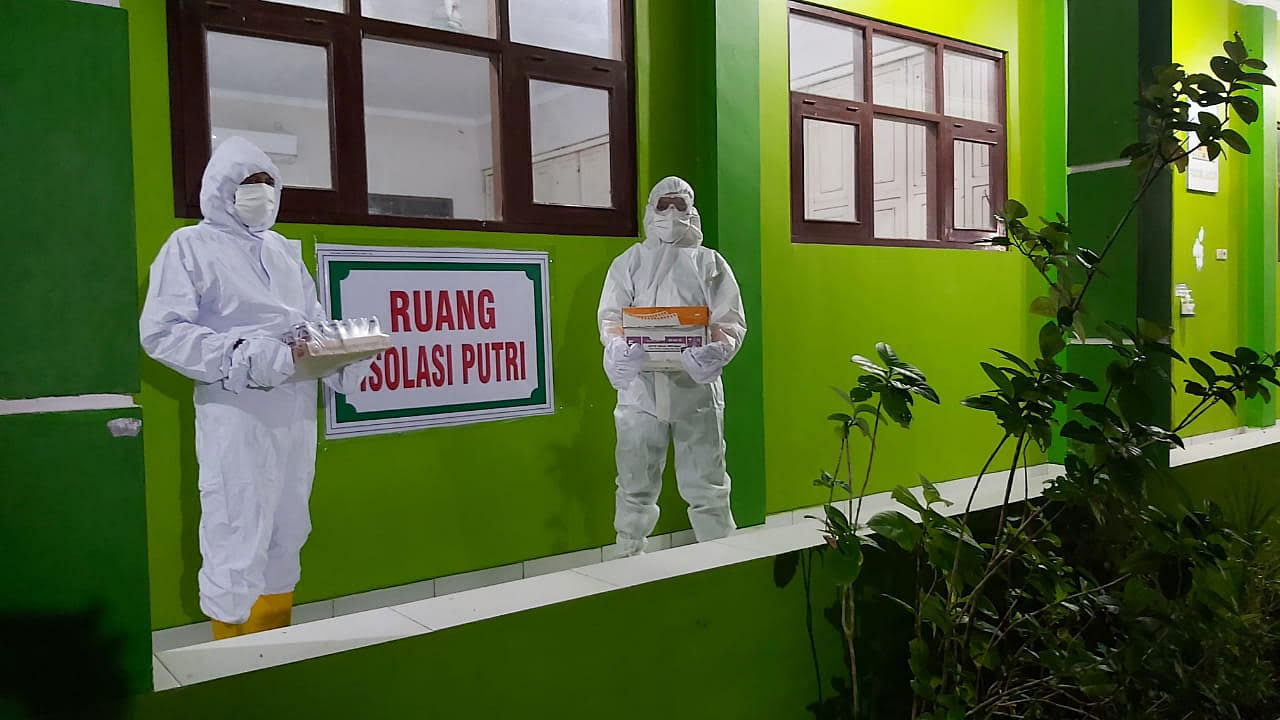
Mr Supriyono, a local official at Nashrul Ummah, said 12 volunteers rotate in three shifts to care for the patients, who have been referred there after swab tests at clinics confirmed they were Covid-19 positive.
"It's better to keep the patients away from home. There had been instances where the husband tested positive and stayed home, but his wife, a close contact, still went to the market and mosque, and could unknowingly transmit the virus to the community," he said.
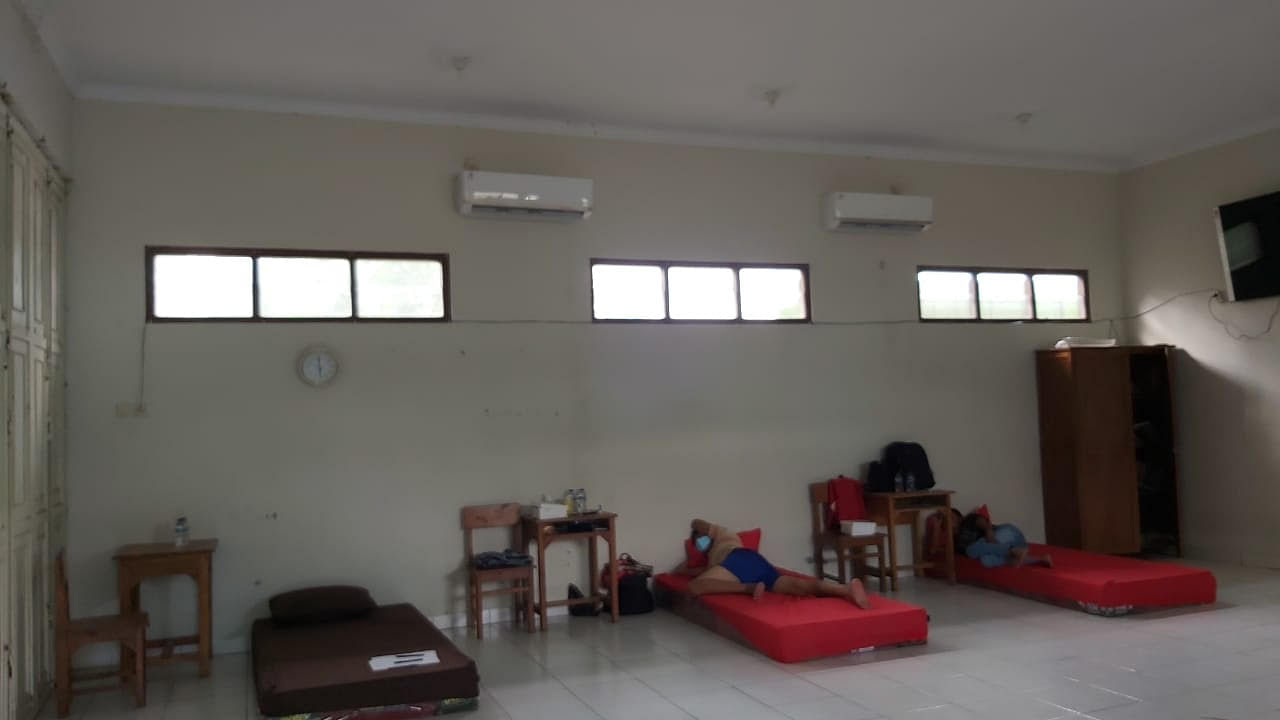
Muslim volunteers have been helping the government and humanitarian organisations bury those who have died of Covid-19.
To prepare a body for Muslim burial, it must be washed and shrouded. In Indonesia, ritual washing of confirmed or suspected Covid-19 bodies is permitted with proper precautions such as using gloves and hazmat suits with face masks to prevent any viral transmission via body fluids or water splash.
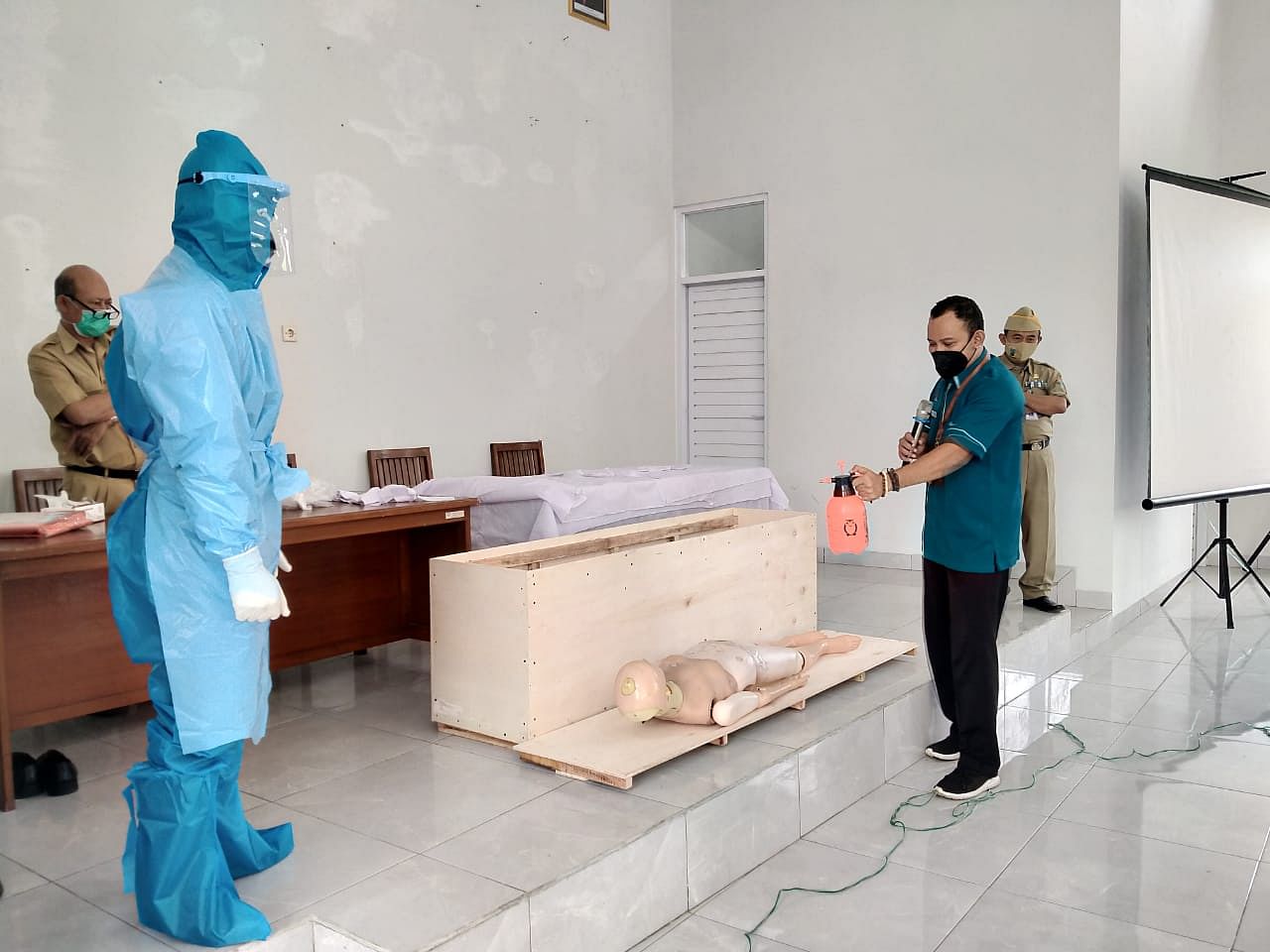
Mr Satriyo Yudo, head of the Muhammadiyah Covid-19 Command Centre in Kudus, said his team has been helping to bury 40 to 50 bodies a day over the past month. Among them were also healthcare workers.
Volunteers teamed up with other agencies such as the Disaster Management Agency to help bury not only Muslims, but also non-Muslims, who have died of Covid-19. From dawn to dusk, the volunteers would dig graves and lower the coffins into the ground.
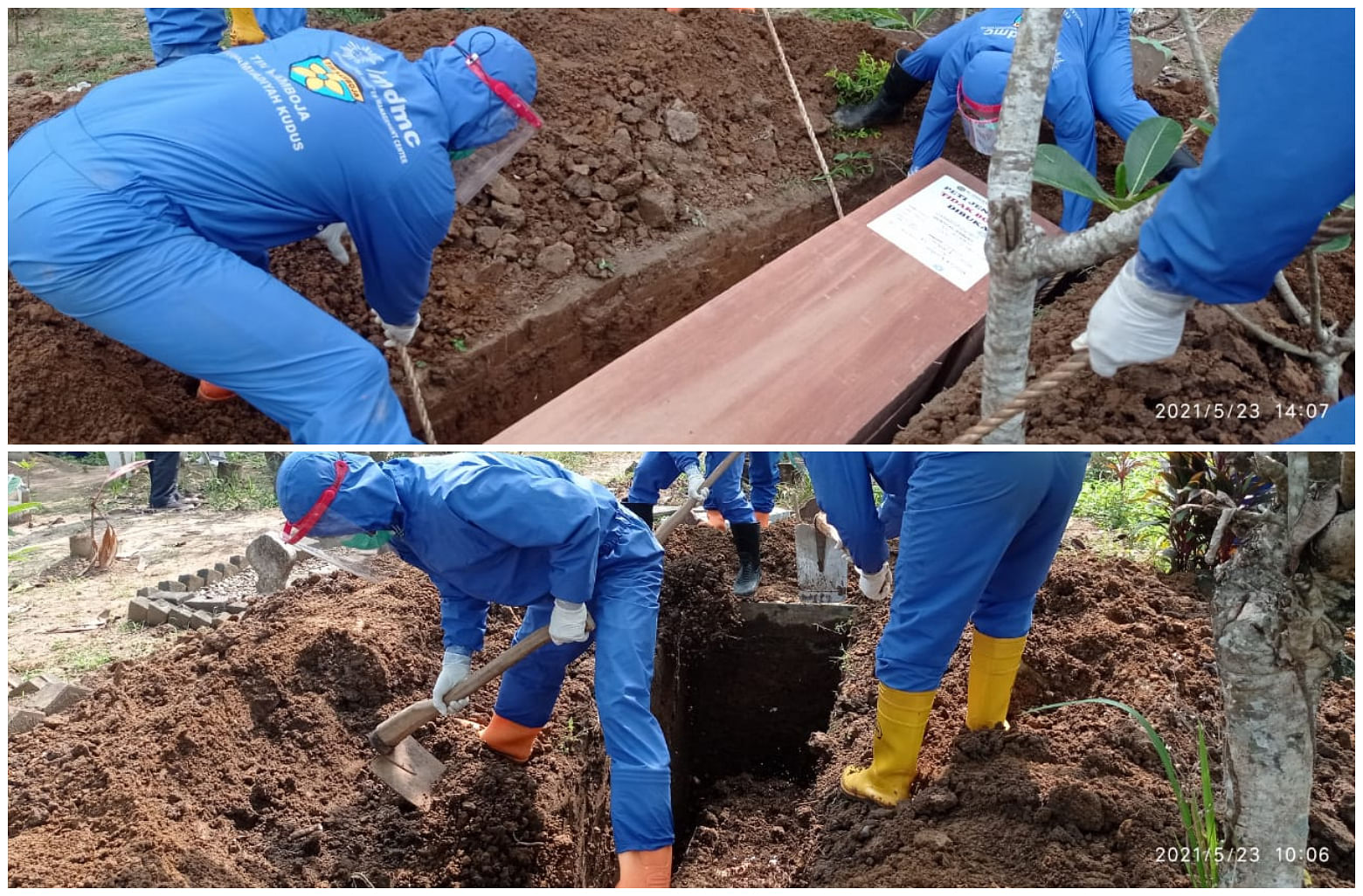
"The majority of Kudus residents are Muslims and they tend to be more attentive when clerics are the ones giving advice on how to deal with the virus. They listen to the clerics more so than the police and military ," Mr Satriyo said.
One of the challenges was to remove the anti-science of some clerics and educate them on Covid-19 response and infection prevention practices.
"Once, a cleric from outside Kudus had visited a mosque here. Worshippers had followed health protocols, washed hands and wore masks. He told them to remove their masks and they did," he said.
It remains to be seen if the efforts to keep a lid on the virus will bear fruit. But the volunteers say they are in for the long haul.
Mr Satriyo has not returned home for two weeks, managing the crisis with his team.
The 40-year-old said he felt compelled to volunteer after he and his family contracted the virus and his brother succumbed to it last year.
He said: "I'm calling for war against the virus. We are all just so sick and tired of it."

